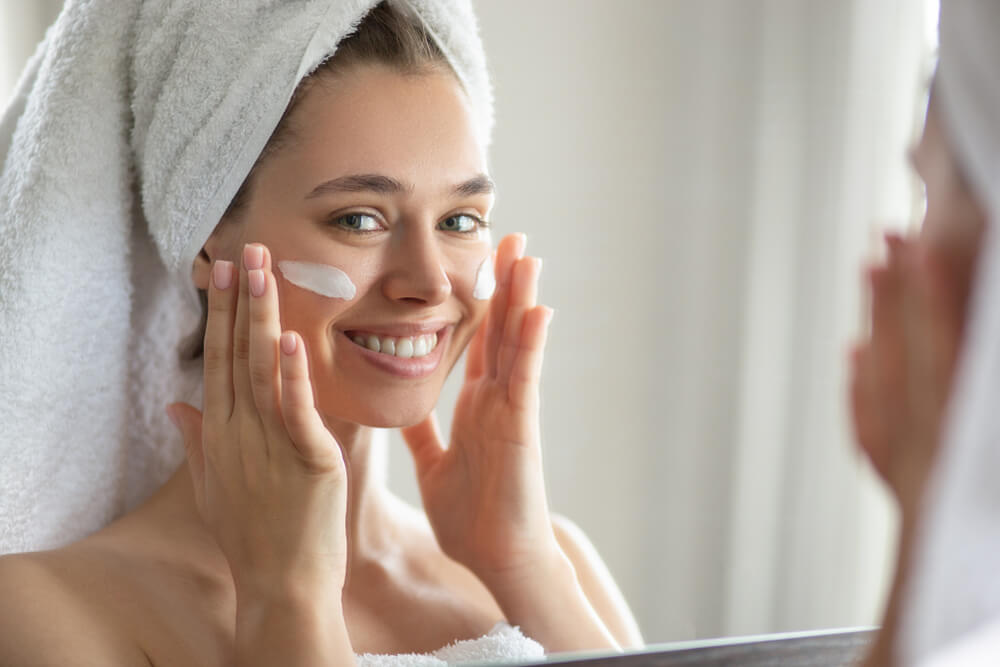In the realm of skincare, myths and misconceptions abound, leading many to adopt routines that they believe are beneficial for their skin. However, some widely accepted practices might actually be doing more harm than good.
Here, we delve into ten common skincare habits that, contrary to popular belief, aren’t as beneficial as they seem. This exploration is informed by insights from dermatological experts and skin care professionals, aiming to shed light on the truth behind these skincare myths.

1. The Sun’s Deceptive Embrace
Many embrace the warmth of the sun, believing a bit of exposure can provide a healthy glow. However, the sun’s rays can be more foe than friend. Ultraviolet (UV) radiation accelerates the breakdown of collagen, leading to premature ageing and increasing the risk of skin cancer.
The allure of a sun-kissed tan often overshadows these risks, making it crucial to prioritise protection over aesthetics. Embracing SPF as a non-negotiable part of your daily routine is essential, regardless of the weather.
2. The Temptation of Pimple Popping
The immediate satisfaction of popping a pimple is undeniable, but this habit can cause long-term damage. When you squeeze a pimple, you risk pushing bacteria deeper into the skin, leading to more severe breakouts and potential scarring.
It’s a stark reminder that patience and proper skincare treatments are preferable to the temporary gratification of popping.
3. Over-Exfoliating: A Double-Edged Sword
Exfoliation is celebrated for its ability to renew the skin’s surface, but there’s a fine line between healthy and harmful practices. Over-exfoliation strips the skin of its natural oils, leading to irritation, dryness, and an increased risk of breakouts.
This highlights the importance of moderation and selecting exfoliation methods that align with your skin type.
4. Hot Water’s Hidden Harm
A hot shower can feel like a soothing escape, but using hot water on your face can strip away essential oils, leading to dryness and irritation. Lukewarm water is the ideal temperature for facial cleansing, effectively removing impurities without compromising the skin’s natural barrier.
5. The Misconception About Moisturizers
While moisturisers play a crucial role in hydrating the skin, there’s a caveat: they can reduce the skin’s natural ability to exfoliate. This can lead to a buildup of dead skin cells, making the skin appear dull and lifeless. It’s essential to find a balance, selecting moisturisers that support the skin’s health without inhibiting its natural processes.
6. The Exfoliating Cleanser Conundrum
Incorporating exfoliating cleansers into your daily routine might seem like a proactive approach to skincare, but it can be too aggressive for daily use. These cleansers can disrupt the skin’s protective barrier, leading to increased sensitivity and dryness. Alternating between gentle cleansers and exfoliating products can help maintain the skin’s health and resilience.
7. The Overuse of Skincare Products
In the quest for flawless skin, there’s a tendency to layer multiple skincare products. However, this can overwhelm the skin, leading to clogged pores and breakouts. It’s a reminder that sometimes, less is more. Using a select few products that cater to your skin’s specific needs can be far more effective than an extensive, multi-step routine.
Additionally, it’s important to note that moisturisers, in general, reduce your skin’s natural ability to exfoliate, which underscores the importance of choosing your skincare products wisely to maintain balance and health.
8. Steam Rooms: A Clouded Judgment
The allure of steam rooms lies in their promise of detoxification and relaxation. However, for certain skin types, particularly those prone to rosacea or sensitivity, the intense heat and humidity can exacerbate redness and irritation. It’s a stark reminder that what feels good in the moment might not always align with what’s best for your skin’s health.
9. Embracing Simplicity in Skincare
The beauty industry often promotes the idea that more is better when it comes to skincare products. Yet, this approach can lead to a complicated, time-consuming routine that may do more harm than good. Simplicity should be the cornerstone of your skincare regimen. Focusing on foundational steps—cleansing, moisturising, and protecting—can yield better results than an elaborate routine filled with potentially conflicting products.
10. Understanding Your Skin’s Language
Your skin communicates its needs in various ways, from dry patches signalling dehydration to excessive oiliness indicating a disrupted barrier. Learning to interpret these signs allows you to adjust your skincare routine accordingly.
For instance, increased sensitivity might necessitate a break from active ingredients, while dullness could call for gentle exfoliation. Tuning into your skin’s language empowers you to provide it with what it truly needs.
In Conclusion
Navigating the world of skincare requires a discerning eye and a willingness to challenge popular myths. By understanding the potential downsides of these common practices, you can make informed decisions that truly benefit your skin’s health.
Remember, skincare is deeply personal, and what works for one person might not work for another. Consulting with a dermatologist can provide tailored advice, ensuring that your skincare routine supports your skin’s unique needs and concerns.




